Medicines
Ayurvedic Medicine:
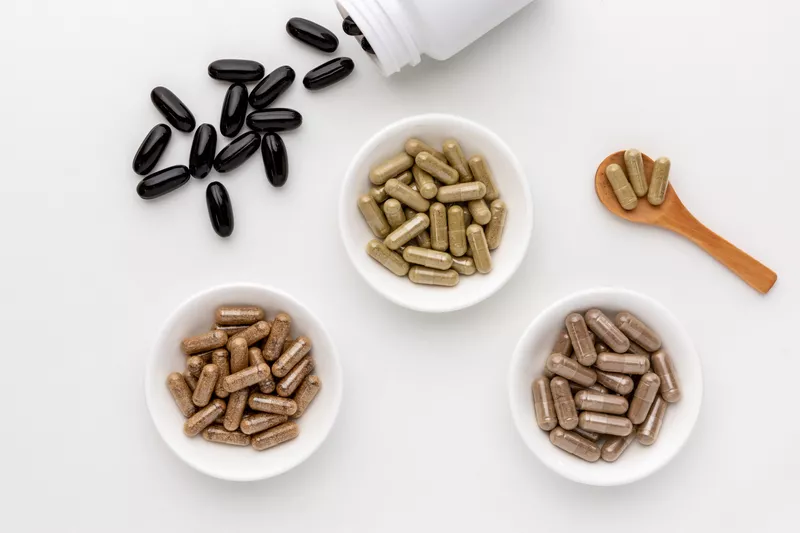
Ayurveda is an ancient Indian healing system that focuses on balancing the mind, body, and spirit. Ayurvedic herbs are used for several reasons, including:
- To "cleanse" the body
- To defend against disease
- To balance the mind, body, and spirit
Ayurvedic medicine aims to prevent illness—rather than respond to disease—by maintaining a balance between your body, mind, and environment.
Ayurvedic treatments include more than 600 herbal formulas and 250 single plant remedies. Ayurveda categorizes therapies according to their health effects, such as pain relief or increased vitality (energy).
Types of Ayurvedic Herbs provided:
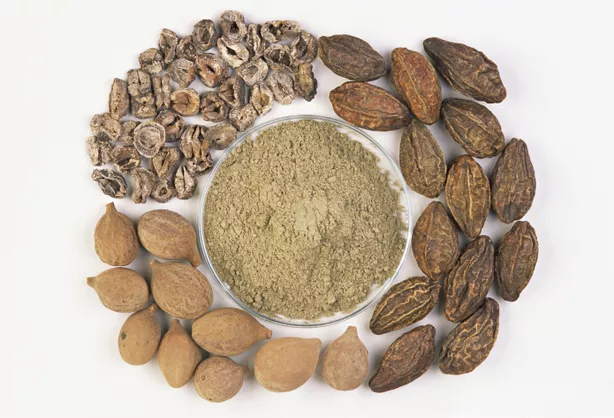
Triphala is actually not one Ayurvedic herb, but a botanical formula that contains three different ones:
- Amla
- Myrobalan
- Belleric Myrobalan
Test tube studies have suggested that triphala may have antioxidant effects. Antioxidants are nutrients that naturally occur in some foods. They detoxify harmful chemicals in the body called free radicals, which can cause long-term harm to cells. As such, triphala could theoretically prevent or delay aging-related diseases like heart disease and cancer.
Proponents also claim that triphala, classified as Rasayana (meaning "path of essence") herbs, could support the health of people with:
- Obesity
- High blood pressure
- High cholestrol
- Diabetes
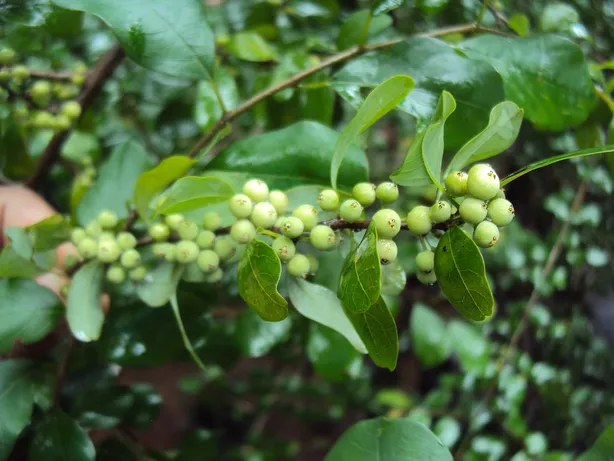
Guggul is an Ayurvedic herb traditionally used to lower cholesterol. It is made from the oily sap of the guggul tree native to India, Bangladesh, and Pakistan.
Historical records show that people have used guggul to treat cardiovascular disease since as far back as the 7th century. However, the research to date is mixed on whether the herb has this benefit.
A 2009 study from Norway reported that 18 people who took a 12-week course of guggul had slight improvements in cholesterol levels. Specifically, the guggul group had improved total cholesterol and "good" high-density lipoprotein (HDL) cholesterol compared to those provided a placebo.
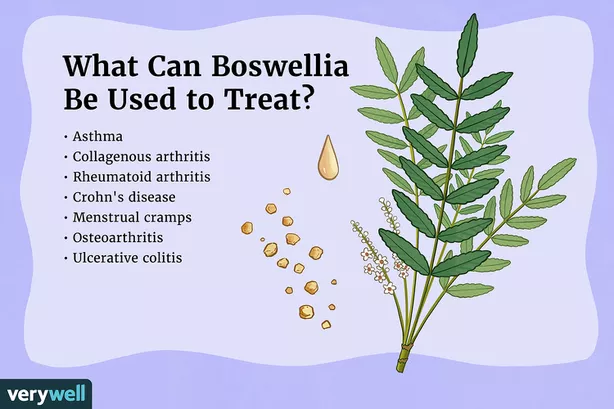
Boswellia, also known as Indian frankincense, comes from the resin of the boswellia tree. The extract is rich in boswellic acid. Test tube studies have found that this compound may have anti-inflammatory effects.
Practitioners believe that these properties can support treatment of chronic inflammatory conditions, such as:
- Asthma
- Cardiovascular disease
- Chronic obstructive pulmonary disease (COPD)
- Ulcerative colitis (a form of inflammatory bowel disease, or IBD)
Scientists believe that a chemical known as acetyl-11-keto-β-boswellic acid can suppress specific inflammatory proteins. Some of these proteins are associated with chronic pain and swelling in people with osteoarthritis, or so-called "wear-and-tear arthritis".3
A 2011 study from India reported that a 30-day course of a purified form of boswellia, called Aflapin, reduced pain in 30 adults with knee arthritis. In addition, relief for many began as early as five days following the start of treatment.
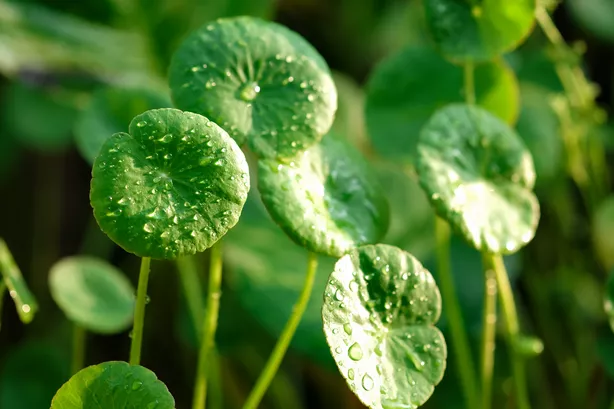
Gotu kola, also known as Asiatic pennywort or Centella Asiatica, is a perennial plant in the Apiaceae family. Practitioners usually prescribe it as a tonic for mental and emotional support, including:
- Anxiety
- Low mood
- Mental fatigue
Gotu kola acts as a mild stimulant. Though the evidence for it use remains mixed, proponents believe this herb can support the following:
- Memory loss
- Depression
- Alzhiemer's disease
- Stroke
A 2016 study from Indonesia reported that gotu kola improved memory in those who had experienced a stroke. Participants who took 750 to 1,000 milligrams (mg) of gotu kola for six weeks had more improved memory than those who took 3 mg of folic acid.
Herbal Medicine
Products made from botanicals, or plants, that are used to treat diseases or to maintain health are called herbal products, botanical products, or phytomedicines. A product made from plants and used solely for internal use is called an herbal supplement.
Many prescription drugs and over-the-counter medicines are also made from plant products, but these products contain only purified ingredients and are regulated by the FDA. Herbal supplements may contain entire plants or plant parts.
Herbal supplements come in all forms: dried, chopped, powdered, capsule, or liquid, and can be used in various ways, including:
- Swallowed as pills, powders, or tinctures
- Brewed as tea
- Applied to the skin as gels, lotions, or creams
- Added to bath water
| Herbal Supplement | Cures Following |
|---|---|
| Black cohosh | This shrub-like plant of eastern North America derives its name from the Native American word for "rough" (referring to its root structure). It is generally used for menopausal conditions, painful menstruation, uterine spasms, and vaginitis. |
| Echinacea | Often used to strengthen the body's immune system, echinacea is also considered a prevention against colds and flu. This U.S. native plant is also called the purple coneflower. |
| Evening primrose | Oil from this night-blooming, bright yellow flowering plant may be helpful in reducing symptoms of arthritis and premenstrual syndrome (PMS). |
| Feverfew | The pain-relieving properties of feverfew have been used for migraine headaches, as well as for menstrual cramps. |
| Garlic | Garlic is generally used for cardiovascular conditions, including high cholesterol and triglyceride levels associated with the risk of atherosclerosis. |
| Gingko biloba | This herb is used for many conditions associated with aging, including poor circulation and memory loss. |
| Ginseng | Used as a general tonic to increase overall body tone, ginseng is considered helpful in elevating energy levels and improving resistance to stress. |
| Green tea | This herb is used to combat fatigue, prevent arteriosclerosis and certain cancers, lower cholesterol, and aid in weight loss. |
| St. John's wort | Wild-growing with yellow flowers, this herb has been used for centuries in the treatment of mental disorders. Today, it is a popular recommendation for mild to moderate depression. |
References:
- Wong, C. (2021-12-03). What are ayurvedic herbs? VeryWellHealth. https://www.verywellhealth.com/popular-ayurvedic-herbs-88822
- Johns Hopkins Medicine. (n.d.). Herbal Medicine https://www.hopkinsmedicine.org/health/wellness-and-prevention/herbal-medicine